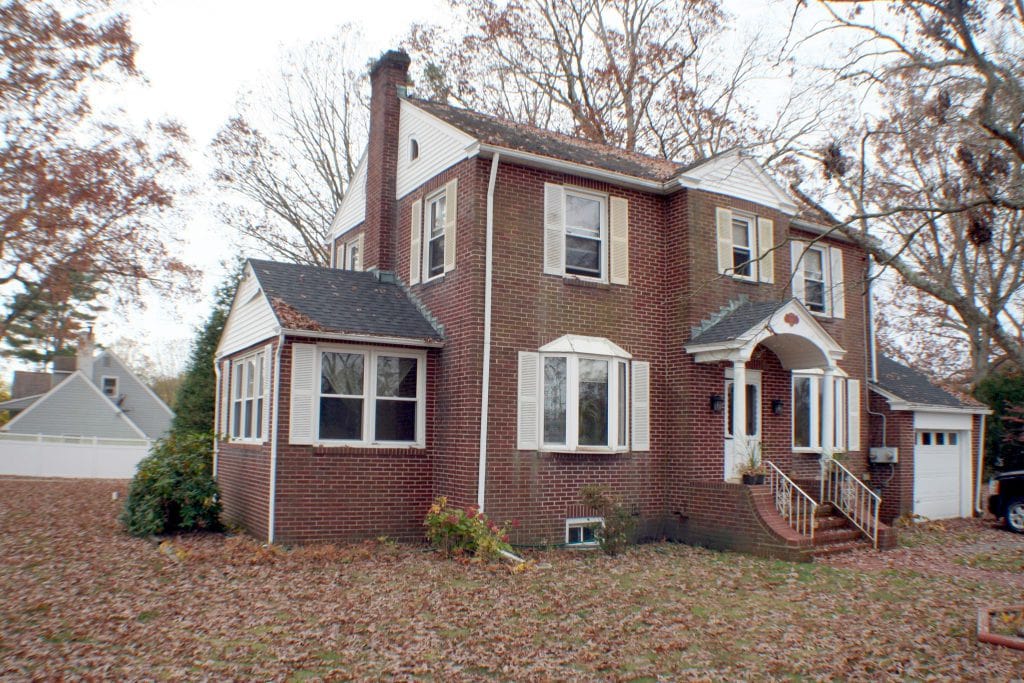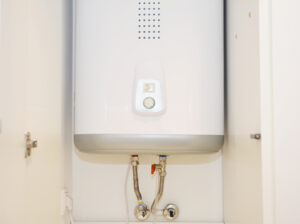Combi Replaces Water Heater And Boiler In Woodbine, NJ Home

As the gas bills kept rising for our Woodbine, NJ, he couldn’t also help but think about how much space his HVAC equipment took up in his garage.
He’d had that old boiler and 40-gallon water heater since he moved in just over a decade ago. Now, they were showing their age by costing more and more to run.
And, now that they were on his mind, he couldn’t unsee how much storage space he was losing to them. He mentioned this second problem as an aside to one of our techs when we send someone out to inspect the equipment.
Our tech confirmed that everything was still working but getting older and less efficient. Our homeowner joked that it’s too bad that HVAC equipment wasn’t like computers — getting both better and smaller.
Little did he know that such a thing exists! And, once he learned more about the Rheem High-Efficiency Combination Boiler, he knew he’d found what he was looking for!
In this case study, we’ll review:
- Four Signs the HVAC System Was Getting Old
- How A Rheem Combi Boiler Works
- Saving Money With A Combi Boiler
Meanwhile, if you’d like to learn more about how you can reduce your energy bills while increasing your living space and comfort in Woodbine, NJ, call or email us at Broadley’s.
Problem: The water heater and boiler in a Woodbine, NJ home were getting old and not working as well as they used to. They also took up a lot of room in the garage.
Solution: Replaced both with one Rheem High-Efficiency Combination Boiler (or Combi). One small unit handles space heat and water heating. And, it saves money by using less energy.
Four Signs the HVAC System Was Getting Old
Our homeowner noticed a few signs that his boiler and water heater were getting too old:
- Gas Bill Kept Rising
- Water Wasn’t Always Warm Enough
- House Took A Long Time To Heat Up
- Both Units Were Over 12 Years Old
Gas Bill Kept Rising
Over time, any HVAC system will lose its efficiency. By the time a heater is near the end of its life, it’s using way more energy — in this case, gas — than what the yellow sticker on the side says it needs.
That’s just the natural progression. Since our homeowner kept track of his bills, he noticed increases every year. And, they didn’t coincide with rate hikes or uses in changes.
Of course, he couldn’t pinpoint the exact problem based on just this information. There were other signs, too.
Water Wasn’t Always Warm Enough
Showers were getting colder, especially in the winter. Even with the water heater set the same as always, the water didn’t get as warm as it used to.
That’s a common problem with an aging water heater: Along with using more energy, it struggles to do the job as well as it used to.
Fortunately, our homeowner took action before the showers were all ice-cold, and he had an emergency on his hands.
House Took A Long Time To Heat Up
Showers weren’t the only thing getting chilly now. The second story would be way colder than the first floor.
That was because of the boiler: It wasn’t producing enough heat any more to treat the entire house.
Both Units Were Over 12 Years Old
Both the boiler and water heater were in the house when our homeowner moved in 12 years ago. That put them both past the prime of their working lives by now.
Boilers usually last up to 15 years, and water heaters make it 10 to 12. In both cases, it was just time for new equipment.
That’s what led our homeowner to the Rheem Combi Boiler: One unit, smaller than either of the appliances he was replacing, that could do the job of both.
How A Rheem Combi Boiler Works
A Rheem Combi Boiler works by taking some of the heat it generates for your home and transferring it to water when you need it.
It’s smaller than a traditional boiler. And, it doesn’t store any water, making it downright tiny compared to a large cylindrical tank built large rough to hold dozens of gallons of water.
Like other tankless water heaters, the Combi won’t warm up the water until you turn a faucet, showerhead, or dishwasher. Once you do, the system quickly warms up the water as it passes through the system.
You never run out of hot water this way: As long as it’s flowing into the house, your Combi keeps heating it up.
Saving Money With A Combi Boiler
Forget about lower bills just because you have a new system: Our homeowner will pay less than he ever has to heat his home and water!
The Combi has a 95 percent AFUE rating. In other words, it only “wastes” five percent of the gas it uses. Our homeowner’s older model started with an AFUE rating in the 80s and only got worse.
Next, getting instant hot water means not running the tap for a minute or two, waiting for the water to warm up. That’s less on the water bill and less energy you’re using to keep gallons of water hot all the time.
That efficiency also turned into upfront savings. The Combi qualified for a $700 rebate from New Jersey Gas. That means our homeowner got that much back in cash, directly from the utility company.
It’s a significant chunk out of the price, and it felt like a bonus when the check arrived after we finished the installation.
Water Heater And Boiler Installations In Woodbine, NJ
Whether you want to upgrade to the latest and greatest or just need a conventional, dependable water heater and boiler installation for your home in Woodbine, NJ, Broadley’s has you covered.
We’ve served South Jersey for over a century, and we’re ready to keep your home warm, comfortable, and energy-efficient.


